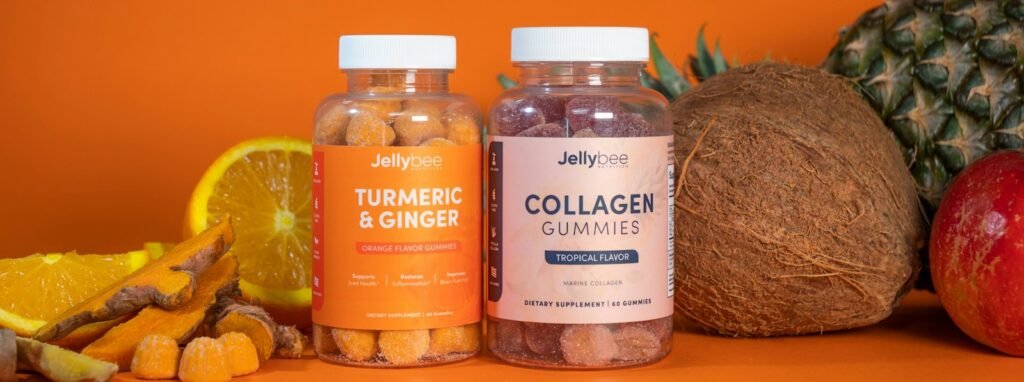Beyond Nutrition: How Nutritional Supplements Shape Health and Manage Disease

Discover trending Nutritional supplements and their impact on the healthspan.
Did you know that according to the United Nations, the number of people aged 60 or above is expected to more than double from 962 million in 2017 to 2.1 billion in 2050? Lifestyle factors, such as increased screen time, lack of exercise, low consumption of healthy nutrients and so on, are major contributors to the increasing mortality rate. Fortunately, recent studies have revealed that adding supplements to your diet can attenuate many of the processes included in the development of these diseases.
But now the question is: So many nutritional supplements exist in the market and are sold under different brand names. How can you choose the best ones for your health? How can you recognize a deficiency and find the best solutions for it? The answer lies in the hands of experts and science. Opt for regular health check-ups for deficiencies and seek expert advice and evidence based supplementation to help you to overcome every situation. Most important is no matter what supplements you take you should always strive for a healthy and balanced diet, good hydration and sufficient exercise.


Understanding The Relationship Between Supplements And Chronic Diseases
Numerous studies have demonstrated the positive impact of nutritional supplements on overall health and the prevention of chronic diseases, including neurodegenerative diseases, cancer, metabolic syndrome, cardiovascular diseases, and diabetes. This article does not aim to prescribe the best supplements to take, as the optimal choice varies based on individual lifestyle and nutritional deficiencies. Instead, the five supplements listed below are intended to provide insights into the wide-ranging applications and potential health benefits of supplements.
Magnesium: The King Of All Dietary Nutrients
Magnesium is an essential mineral found in a variety of foods. Rich sources include leafy green vegetables (such as spinach and kale), nuts and seeds (like almonds, cashews, and pumpkin seeds), whole grains (such as brown rice and quinoa), legumes (including black beans and lentils), and certain fruits (like bananas and avocados).
We all have heard of magnesium, but mostly while dealing with the periodic table of elements. Whoever thought that this metal could be helpful in managing common chronic conditions such as asthma, diabetes, premenstrual syndrome, hyperlipidemia, migraine, and various cardiac arrhythmias?
Yes, you heard it right: magnesium catalysts have more than 300 enzymatic reactions in the human body. Along with the mentioned above,magnesium is also effective in prevention of renal calculi and cataract formation. Therefore, it is necessary for the biochemical functioning of the numerous metabolic pathways. What’s more shocking is that two thirds of the population aren’t consuming the recommended daily dose of magnesium. And the deficiency contributes to various chronic health conditions.
Vitamin D: The Key To Healthy Bones
Vitamin D is a hormone activated in our body by sunlight. It is very important for the health of our bones and therefore for the structure supporting our body. If you don’t get enough sunlight it does make sense to take supplements.
Also remember the days of the COVID-19 pandemic, when the world witnessed severe mortality. And among COVID-19 patients, the vitamin D endocrine system has influenced the mortality rate. Calcifediol, a rapid precursor of the active form of vitamin D, holds promise in augmenting serum 25OHD levels swiftly.
Let’s make this term easier for you; studies revealed that the group treated with calcifediol reflects 1 ICU admission compared to 13 among the untreated group. Further, adding Vitamin D and dietary supplements reduces the severity of chronic disease.
Omega-3 Fatty Acids And Brain & Cardiovascular Diseases
Omega 3 is found in many products of a balanced diet but mainly in fish.
It is responsible for the normal function of the heart and also the function of our brain.
According to WHO, cardiovascular diseases cost an estimated 17.9 million lives each year. This includes a range of disorders, coronary heart disease, rheumatic heart disease, and other conditions. Omega-3 fatty acids in dietary supplementation have proven effective against cardiovascular diseases.
As per studies, Omega-3 fatty acid supplements have been shown to significantly improve blood flow and heart health by enhancing endothelial function. They specifically improve flow-mediated dilation (FMD), which helps regulate blood flow and supports cardiovascular health. This enhancement in endothelial function suggests that omega-3 supplements could play a crucial role in the prevention and management of cardiovascular diseases in the future.
Omega-3 is also key to brain health, exhibiting neuroprotective properties, reducing the risk of diseases like Alzheimer’s and Parkinson’s by lowering brain inflammation and oxidative stress. Additionally, they enhance memory and learning and slow age-related cognitive decline by maintaining cell membrane health.
Withania Somnifera And Male Fertility
Did you know that, according to a recent BBC article on male fertility, global sperm counts have halved over the past decades? Thanks to the contributors such as stress, lifestyle, and poor nutrition. This is a good example of a health issue that may be improved by the use of supplements.
Ashwagandha, scientifically known as Withania somnifera, is a plant proven to reduce the stress level in males in such a way that it improves fertility rates. The studies brought out that W. somnifera treatment in males reduces stress-related infertility. It improves the level of antioxidants and improves the overall semen quality. Ashwagandha also supports cognitive function, has anti-inflammatory and antioxidant properties, enhances physical performance, boosts immune function, and promotes better sleep.
While generally considered safe, more high-quality clinical trials are needed to fully understand its benefits and safety profile.
Rhodiola Rosea And Mental Anxiety
Another psychological factor that may cause chronic illness, such as hypertension and cardiovascular arrests, is mental anxiety. More than 33.9% of the worlds population suffer from chronic anxiety. Supplementing with Rhodiola rosea is proven effective in reducing anxiety, stress, burnout and fatigue.
A recent investigation revealed that adding R. rosea as a dietary supplement reflects a significant improvement in fatigue, which includes associative thinking, short-term memory, calculation, concentration, and speed of audio-visual perception. The best part is that no side-effects have been recorded till now related to the ability of R. rosea in certain stressful conditions.
Things To Consider Before Adding Supplementation Into Your Diet
The list of dietary supplements is extensive. Just to give a few more examples: zinc aids immune function and wound healing; iron is essential for blood production and oxygen transport; protein supports muscle repair, growth, and overall body maintenance; and vitamin C boosts the immune system, aids in iron absorption, and promotes healthy skin and tissue repair.
It is important to note that most of these nutrients can be consumed through a healthy and diverse diet. Supplements are meant to address nutritional deficiencies, complementing rather than replacing a healthy diet. They are not substitutes for nutritious meals or medicines. Unlike medicines, which must undergo rigorous clinical trials and FDA regulatory approval, supplements do not require FDA approval. This lack of regulation increases the risk of incorrect dosages, poor efficacy, side effects, and other health risks.
A Way Forward
Nutritional supplements have become a global trend, demonstrating positive impacts on health and in preventing chronic diseases. To effectively supplement your body, it’s important to be aware and address your specific nutritional deficiencies. Always seek expert advice, check dosages carefully, and review scientific evidence before incorporating any supplements into your routine.

